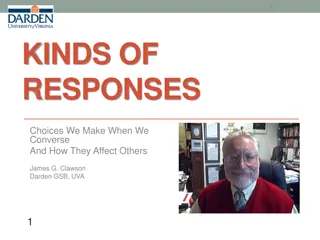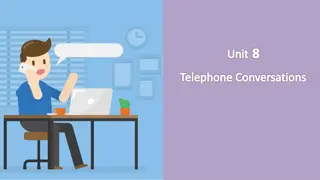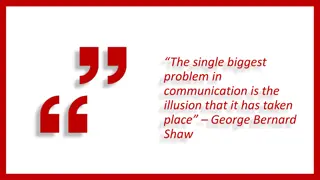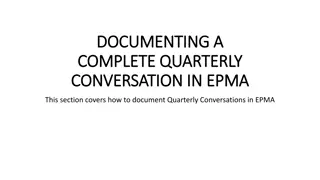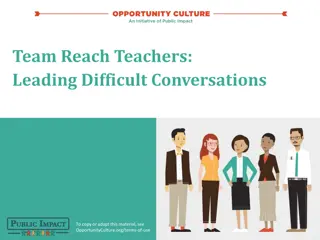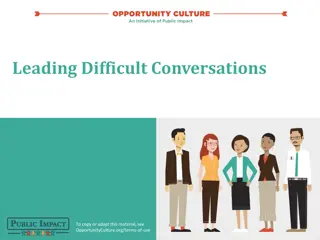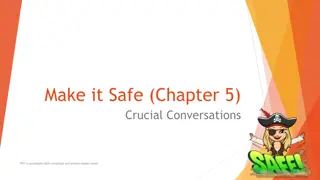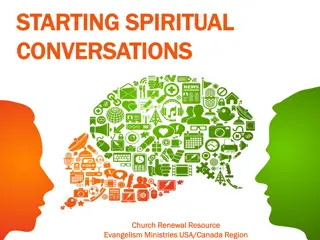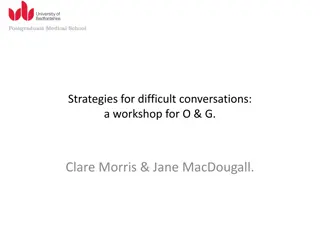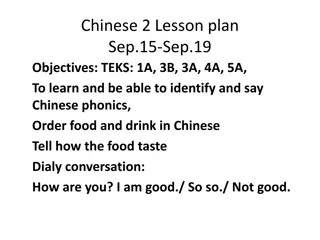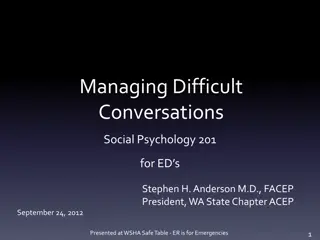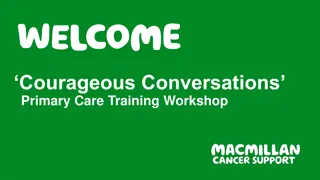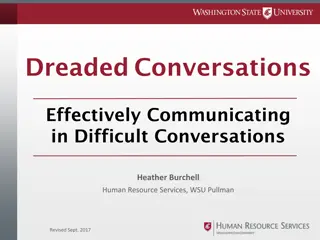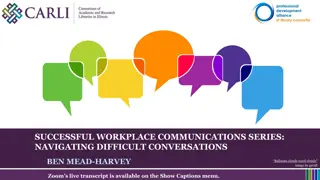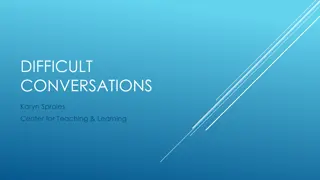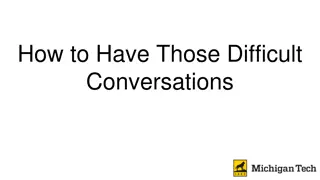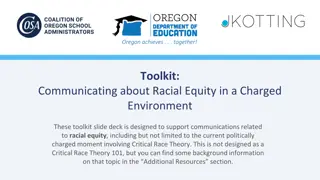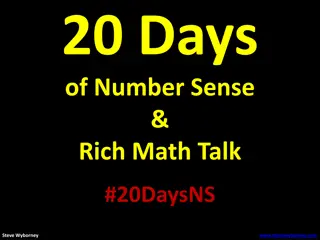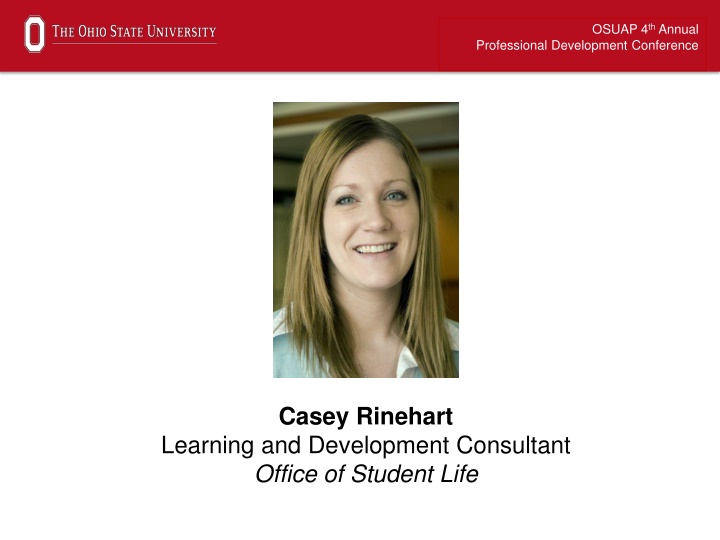
Effective Techniques for Handling Difficult Conversations at Professional Development Conference
Enhance your skills in managing challenging conversations through the OSUAP 4th Annual Professional Development Conference. Explore insights on why conversations become difficult, tools to navigate them successfully, and practical strategies to apply. Elevate your communication abilities and foster positive interactions in diverse settings.
Download Presentation

Please find below an Image/Link to download the presentation.
The content on the website is provided AS IS for your information and personal use only. It may not be sold, licensed, or shared on other websites without obtaining consent from the author. If you encounter any issues during the download, it is possible that the publisher has removed the file from their server.
You are allowed to download the files provided on this website for personal or commercial use, subject to the condition that they are used lawfully. All files are the property of their respective owners.
The content on the website is provided AS IS for your information and personal use only. It may not be sold, licensed, or shared on other websites without obtaining consent from the author.
E N D
Presentation Transcript
OSUAP 4thAnnual Professional Development Conference Casey Rinehart Learning and Development Consultant Office of Student Life
Difficult Conversations OSUAP Annual Conference
Session Agenda Introduction Why we are here Six tools, one model Using the model and tools Putting the model to practice Wrap-up 3
Introduction What makes some conversations difficult ? 4
Why are we here? How many of you have been holding onto a conversation because it may be difficult to have? As we heard from Beth Thomas we have the power to create joy in our every day! Difficult conversations can be distractions; stealing our mental energy, increasing worry and negative thoughts. Are difficult conversations holding your happiness hostage? Are difficult conversations putting the Un in front of your Happy ? 5
Difficult Conversations Toolkit: 1. Make it Safe 2. Listen 3. Yes, AND 4. Recognize Your Stories 5. Use I Messages 6. Own Your Own Stuff 6 tools One Model 6
Tool #1: Make it Safe CRIB: Commit to seek Mutual Purpose Recognize the purpose behind the strategy Invent a Mutual purpose Brainstorm new strategies If you are misinterpreted, use a contrasting statement I don twant/mean ____ (their misinterpretation) I dowant/mean ____ (your true intent) 7
Tool #2: Listen Seek first to understand Ask open-ended questions Tell me more Help me understand What are your thoughts on Mirror to confirm feelings Paraphrase to acknowledge Prime Listen for what is NOT being said 8
Tool #3: Yes, AND Adopt the Yes, and Stance We all see the world differently; all perceptions are valid This is about owning and stating your point of view, AND being open and willing to hear and accept another point of view Like parachutes, minds must be open to function properly. 9
Tool #4: Recognize Your Stories What are you telling yourself? Why am I feeling this way? What evidence to I have to support this story? Victim Am I ignoring the role I played in the problem? Villain Am I automatically assuming the worst possible motives while ignoring any possible good or neutral intentions? Helpless Am I really powerless to do nothing about this? 10
Recognize Your Stories, continued Something Happens Our Story Behaviors Events, people and situations Our thoughts about the event or person based on our filters Our response is influenced by our story -What we see and hear -The story we tell ourselves -We begin to feel and then act 11
Tool #5: Use I Messages Start your sentences with I Sentences that start with you sound accusatory and blaming, likely resulting in defensiveness Consider how you would want a similar conversation delivered to you 12
Tool #6: Own Your Own Stuff Focus on personal accountability, not blame Personal accountability = accepting responsibility for my own actions and non-actions 13
Applying the Model State what you want to discuss. I want to talk with you about... Share a specific example. I heard Explain what is bothering you. I am concerned about.. Describe the importance. From my perspective this is important because... Own your own stuff. I have some responsibility For this, I am sorry. Ask for the other perspective. Help me understand your point of view. Use the tools you have. Be quiet and curious. Tell me more about that. Summarize what was learned. Re-state the importance. Ask for what you want next. Make an agreement. Say, Thank You. Check back in two weeks. 14
Readings + References Crucial Conversations (Kerry Patterson, Joseph Grenny, Ron McMillan, and Al Switzler) Difficult Conversations (Douglas Stone, Bruce Patton, Sheila Heen, and Roger Fisher) Fierce Conversations (Susan Scott) Fierce Leadership (Susan Scott) John H. Harvey, J.H., & Pauwels, B.G. (2009). Relationship Connection: A Redux on the Role of Minding and the Quality of Feeling Special in the Enhancement of Closeness. [Eds.] Snyder, C.D., & Lopez, S.J. Oxford Handbook of Positive Psychology: Second Edition. Oxford: Oxford University Press. 385 392 15
Thank You! 16

